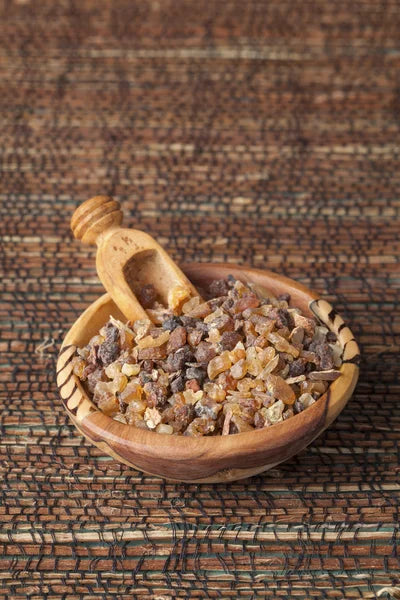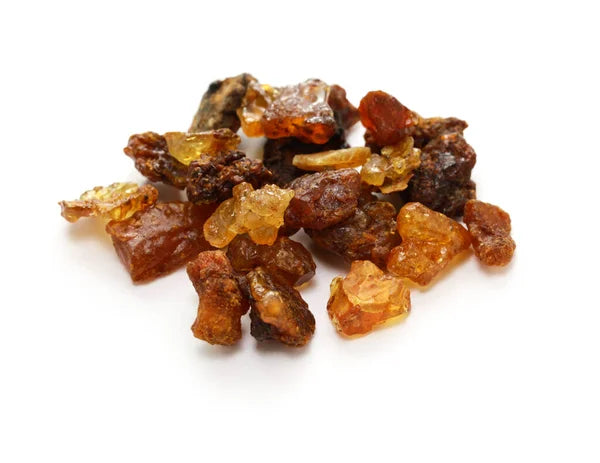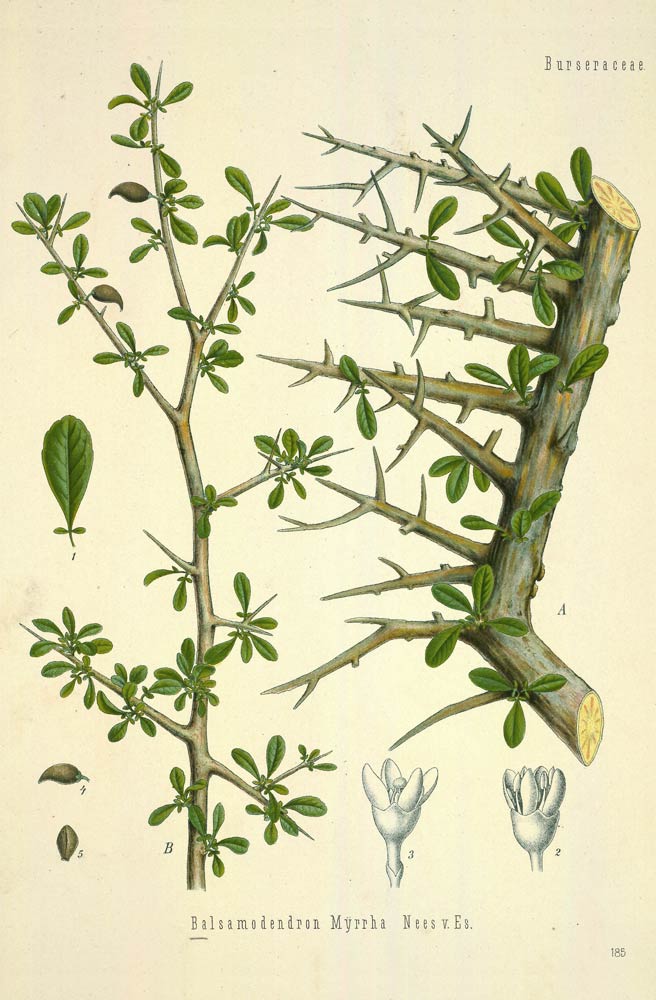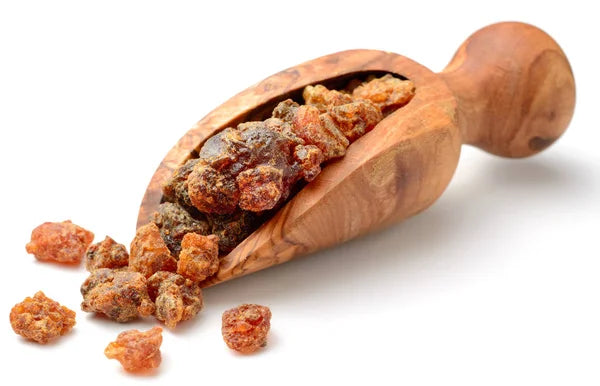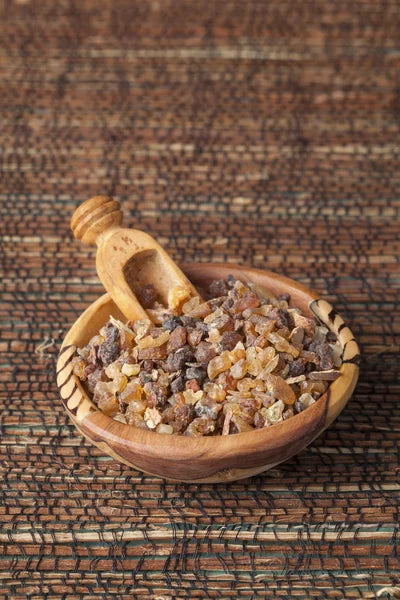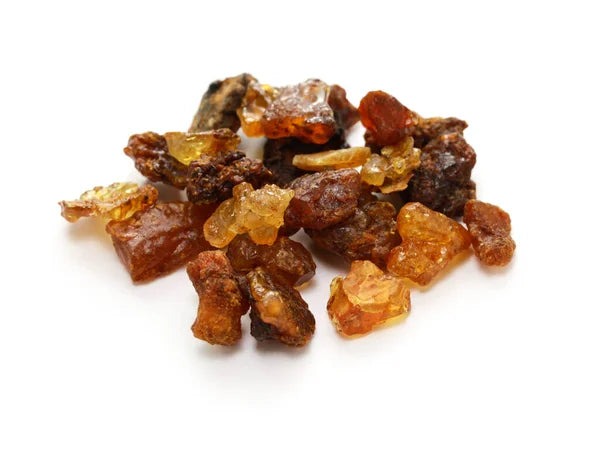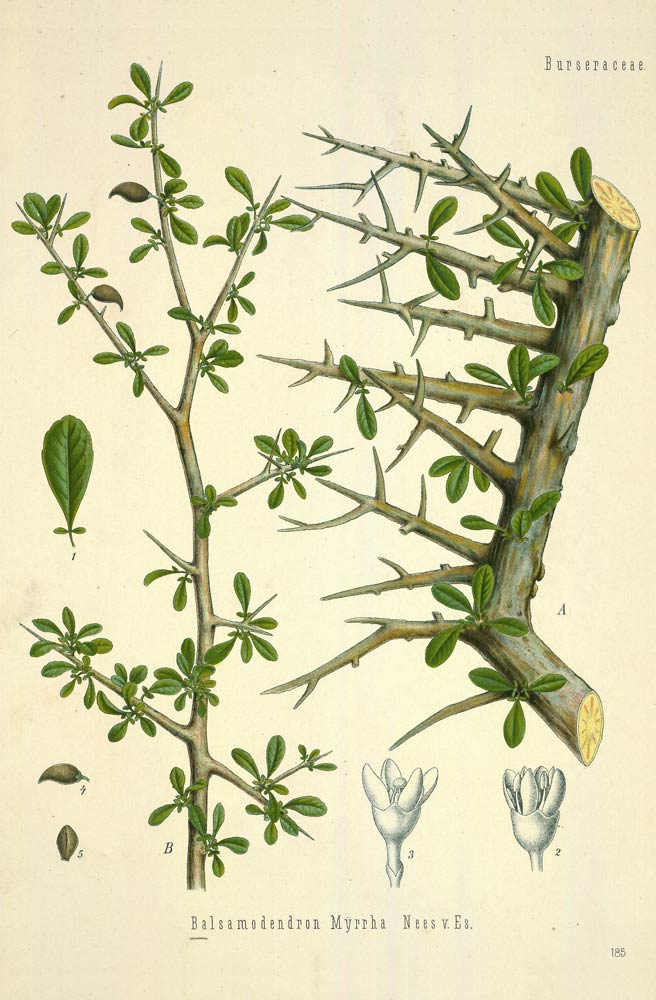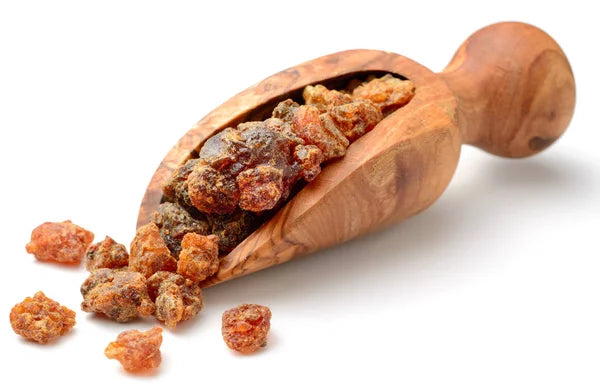Myrrh Resin Pieces 4 oz
Myrrh Resin Pieces 4 oz
Couldn't load pickup availability
Myrrh Resin
Commiphora molmol
Myrrh refers to the sap of a Mediterranean tree, which is collected by slashing its bark and capturing the running “tears” of resin. When fully dried, myrrh takes on a beautiful amber color and possessed an elegant and exotic fragrance. These qualities make pure myrrh a popular incense ingredient, alone or in combination with other herbs and resins. Ground myrrh resin is traditionally used to prepare salves and other topical formulations. It is also found in natural dental preparations, such as tooth powders and mouth washes.
A Bit of Botany
a little botanical information
description
Myrrh is not actually a plant but rather a plant product, one of the oldest plant products still in active use. One of the trees that produce myrrh, Commiphora molmol, when slit with a knife, exudes a gummy white resinous sap that hardens quickly in the sun. This hardened sap is myrrh.
The myrrh tree is a squat, shrubby, and thorny tree of the Burseraceae family.
The trees that yield resin do not grow more than 9 feet in height, but they are of a sturdy build. They have knotted branches with branchlets that stand out at right-angles, ending in a sharp spine. The trifoliate leaves are scanty, small and very unequal, oval and entire.
There are ducts in the bark, and the tissue between them breaks down, forming large cavities, which, with the remaining ducts, becomes filled with a granular secretion which is freely discharged when the bark is wounded, or from natural fissures. It flows as a pale yellow liquid, but hardens to a reddish-brown mass, being found in commerce in tears of many sizes, the average being that of a walnut. The surface is rough and powdered, and the pieces are brittle, with a granular fracture, semi-transparent, oily, and often show whitish marks. The odor and taste are aromatic, the latter also acrid and bitter.
common names & nomenclature
The word myrrh is derived from the Aramaic word murr, meaning "was bitter".
Also known as:
myrrh, myrrh gum, common myrrh, commiphora myrrha
Share
